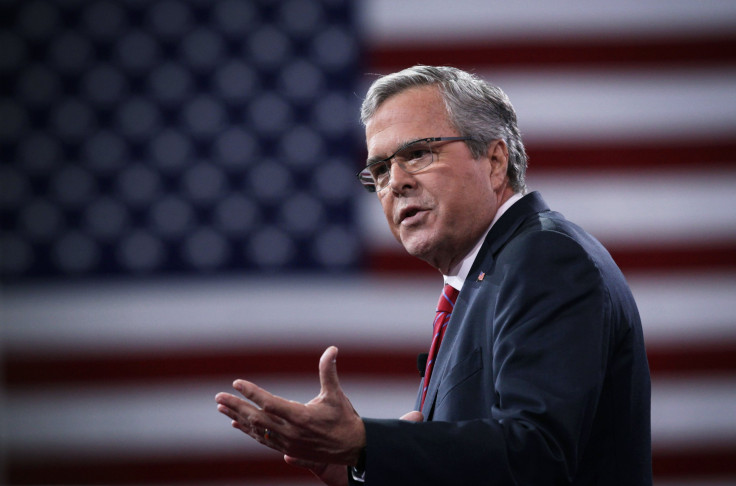Election 2016: Silicon Valley Becomes Major Money Force In Politics

When Jeb Bush visits Silicon Valley on Thursday, the Republican presidential candidate will be visiting the heart of a Democratic state that few expect to be in play in the 2016 election. But when it comes to the political money chase, the Northern California home of the world’s technology giants spreads the wealth to both parties -- and at new levels that have suddenly positioned the tech industry as one of the most powerful forces in American politics.
Since 2008, the Internet firms, software companies, computer manufacturers and data processors that comprise Silicon Valley have delivered more than $172 million in campaign contributions for federal elections, according to data compiled by the Center for Responsive Politics. That's a nearly 40 percent increase over the prior eight years. Counting only presidential election years, the increase is even more dramatic: The $109 million in Silicon Valley money pumped into the 2008 and 2012 elections represents a 61 percent increase from 2004 and 2000.
Out of the money given directly to candidates (as opposed to third-party groups) since 2008, Democrats since 2008 have received 62 percent of the contributions. But Republicans' 37 percent in that same time was hardly pocket change -- it translated to a hefty $55 million.
To understand the political power that largesse represents, context is key: An analysis by International Business Times shows that Silicon Valley has now surpassed many traditional political powerhouses as a source of campaign cash. In the last election cycle, technology firms delivered more money to candidates for president and Congress than defense contractors, pharmaceutical manufacturers, the automotive industry and Hollywood.
“Silicon Valley woke up to the importance of influencing public policy,” said Vivek Wadhwa, a fellow at the Rock Center for Corporate Governance, a joint effort by Stanford's law school and graduate school of business.
In 2012, that influence was on display when Internet firms notched an unexpected victory over the Hollywood studios that were pushing legislation to hold Internet companies responsible for the illegal transmission of pirated movies and television shows. Despite the so-called Stop Online Piracy Act being backed by the powerful Motion Picture Association of America, the bill was defeated by tech firms’ furious campaign against the measure.
Of Silicon Valley’s ability to defeat Hollywood-backed legislation, MPAA Chairman Chris Dodd, a former Democratic U.S. senator from Connecticut, said at the time: "It's a watershed event, what happened.”
Over the past year, presidential candidates from both parties have staged high-profile events in Silicon Valley.
On the Democratic side, Hillary Clinton unexpectedly appeared at a Cisco sales event, and was interviewed onstage by company CEO John Chambers.
Among Republican presidential candidates, New Jersey Gov. Chris Christie has been a favorite of Silicon Valley in the past, holding Republican Governors Association fundraisers in the San Francisco Bay Area and raking in money for his own election campaigns from Silicon Valley icons such as Facebook’s Mark Zuckerberg. Former Hewlett-Packard CEO Carly Fiorina and neurosurgeon Ben Carson are also reportedly scheduled to hold fundraising events in the Bay Area, and Bush’s visit this week marks his second fundraising trip to the area in just the past few months. Meanwhile, Kentucky Republican Sen. Rand Paul has reaped big donations from tech-sector icons and has opened an office in San Francisco.
For all the Northern California money flowing into politics, though, there is no single Silicon Valley public policy agenda. Tech firms, Wadhwa says, want “freedom from regulation and immigration,” but, he says, “there is no single ideology.”
That said, in recent years, technology firms have formed a unified front on some hot-button issues, beyond just immigration reform, corporate regulation and the online piracy bill.
In 2013, Silicon Valley giants such as Facebook, Apple, Google, and Mozilla pressed for limits on National Security Agency surveillance after disclosures by whistleblower Edward Snowden. In March of this year, Silicon Valley won a victory when the Federal Communications Commission passed so-called “net neutrality” rules designed to prevent cable companies from charging different transmission rates to Internet content providers. And in May, Apple, Google and Facebook wrote to President Barack Obama, declaring their opposition to any efforts to weaken encryption standards.
© Copyright IBTimes 2024. All rights reserved.






















